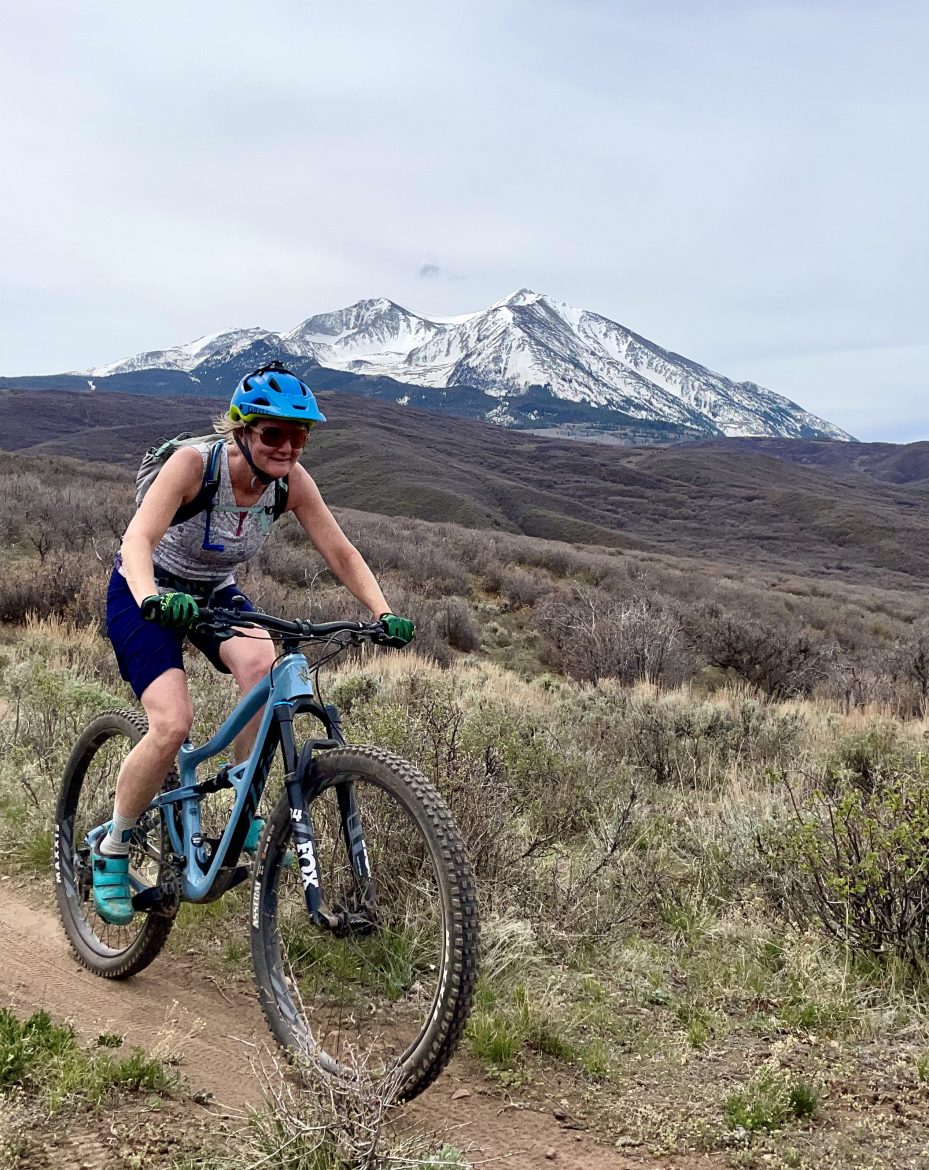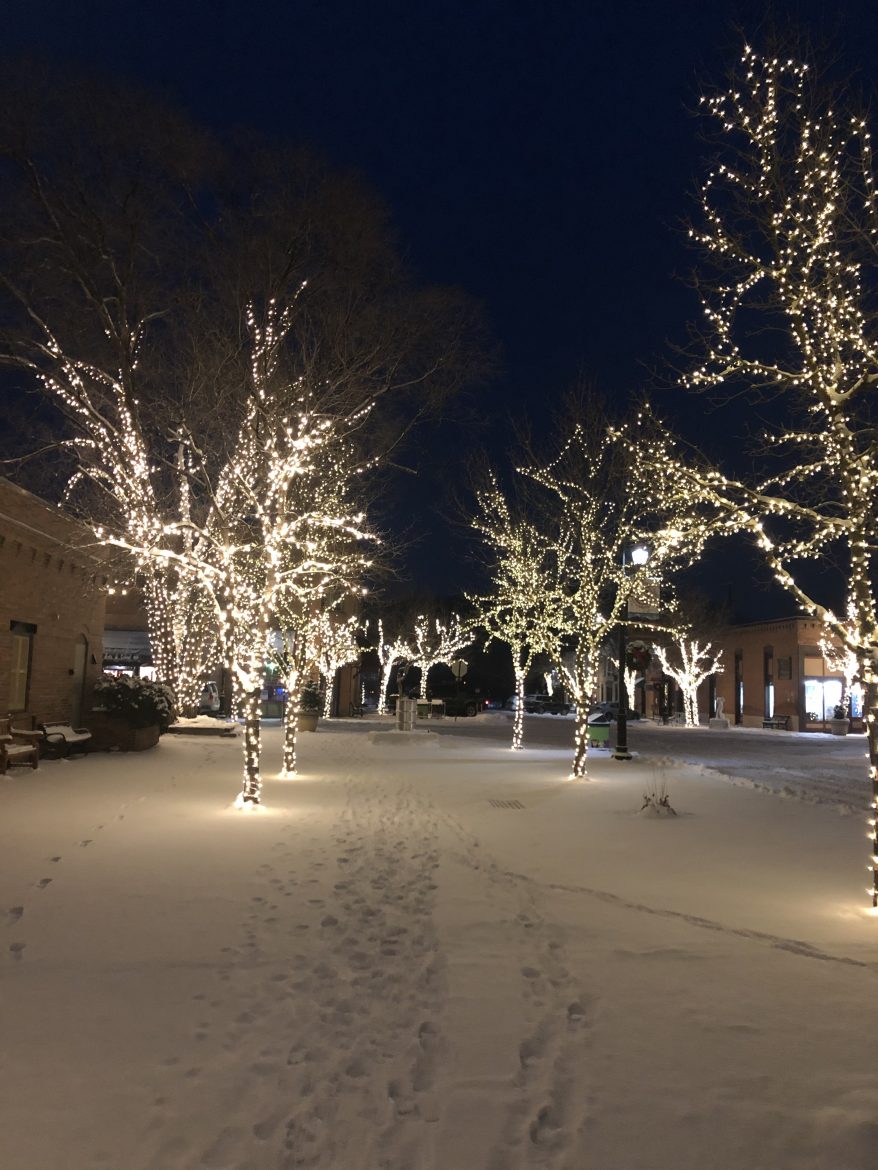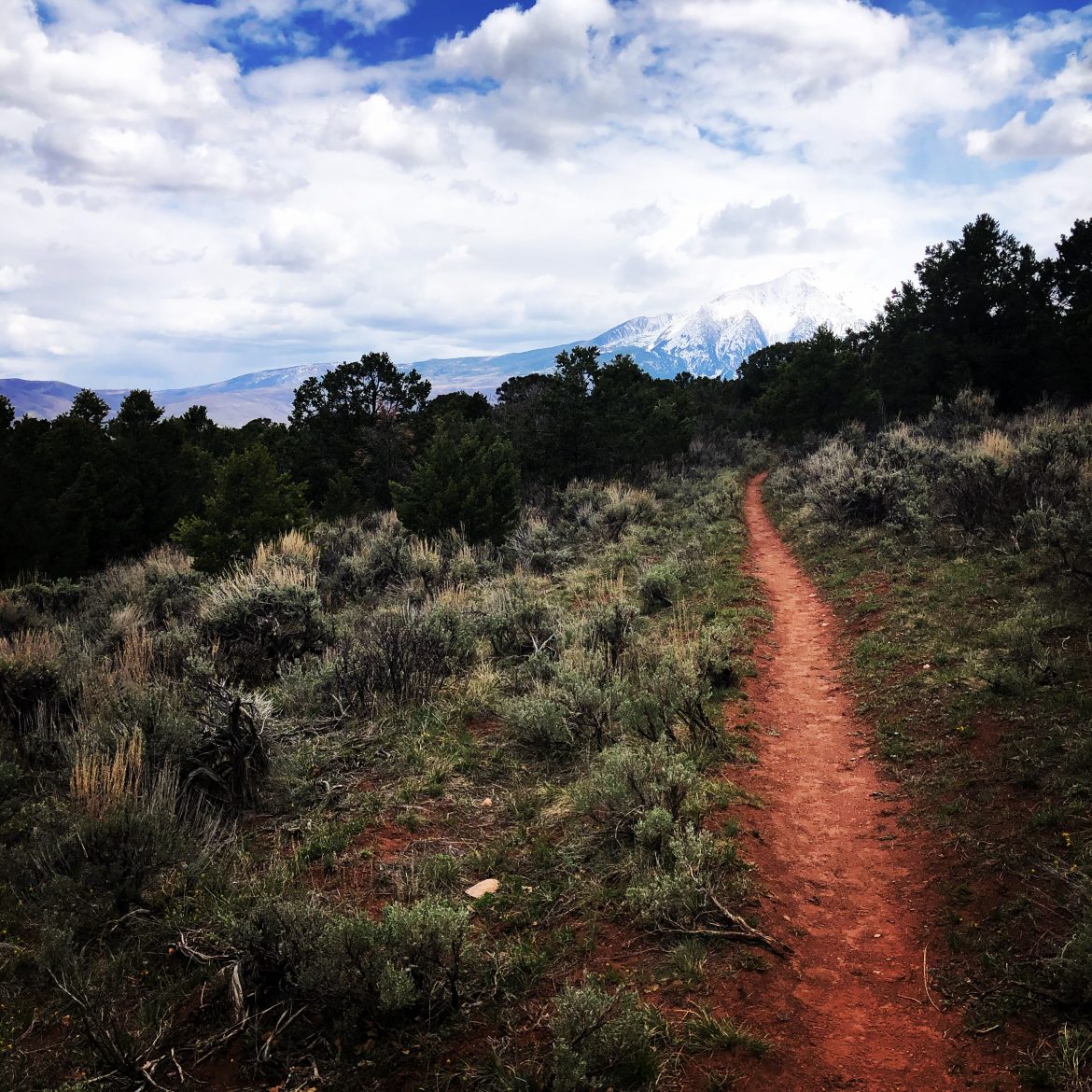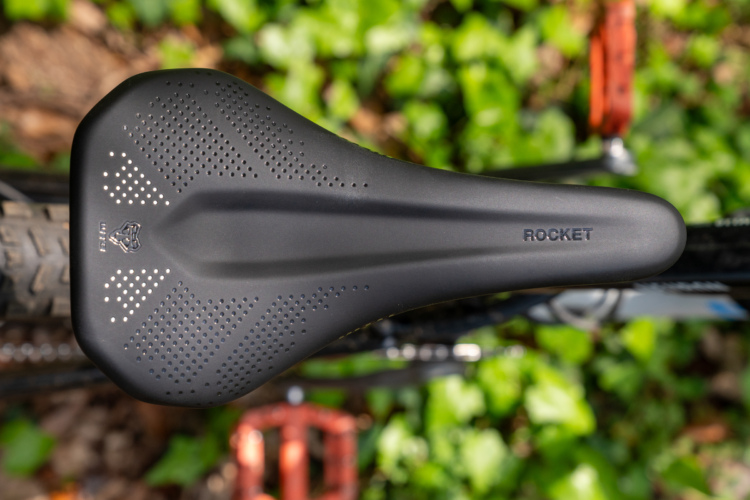When the shutdown arrived, I had been living in Marin County and working in downtown San Francisco and Oakland for over 20 years. I took a long solo road trip in June to visit a friend in Carbondale, Colorado. After a soul-refreshing ride up and around the shoulders of snow-capped Mt. Sopris, I sighed and said the same thing I’d been saying for 20+ years—“Gee, I’d sure love to live in Colorado someday…” My next thought was “Heyyyy…they said to work remote…Colorado is remote…”
Having just ended a 15-year relationship mere minutes prior to solitary confinement orders (my timing has always been impeccable on this front), having no children, pets, or mortgage, I was uniquely untethered, able to pick up and move three states away with relative ease. The things that moved me—the charm, beauty and ease of a small mountain town, lower cost of living, amazing mountain biking on trail systems that openly and warmly welcome versus the constant overt and subliminal browbeating one receives in Marin County, the “birthplace of mountain biking” (I must now refrain from this claim as my new Crested Butte pals get kinda pissy and if I want to be invited to ride their stash I’d better get with the program)—have moved others as well.
Statistics nationwide show that there was a significant outmigration from urban centers in 2020, with 82% seeing populations decline, and 91% of suburbs seeing populations increase. Somewhat surprisingly, 28% moved within the same region, zip code or adjoining zip code. So despite the temptation to label the population’s movement in 2020 an urban “exodus” as many news outlets have done, it may be that “sloshing” might better describe the motion of the populace. “Temporary Change of Address” cards filled out with the US Postal Service indicate that many city-to-suburb or country/mountain moves are of limited duration, and that when the sloshing settles, people may well return to cities. Or not.
I have been delighted to find that my fears of being shunned for being an “invader”—one of those digital nomads from the Bay Area landing with a big, dusty, skidding thud—were thankfully unfounded. I have felt embraced by both the cycling and broader community (though I did change my license plates ASAP, just in case). My inability to compete in anything aside from the rental market may have reduced my threat status—newspaper headlines, radio snippets and floating conversational fragments captured trailside all confirm that the housing crunch is real and daunting, even here in the Roaring Fork Valley. The market is tight and prices in Carbondale are up 15.3% since April of 2020. With a median list price of $806,000, this former public servant couldn’t buy if she wanted to. And these prices are downright dreamy compared to the San Francisco Bay Area.
Interested to learn of other’s experiences on this front, I reached out to Eric Nicoletti who moved from Decatur, Georgia, to Brevard, North Carolina in search of stoke. Nicoletti and his wife and two children had lived in Decatur for 16 years when a combination of opportunity, timing, and Covid-inspired bravado prompted their interstate migration. They moved in June and bought a house in January, so the move is permanent, though a 3-hour drive to Atlanta every few months may be in the cards.
“I had done the Pisgah Mountain Bike Adventure Race every year for 10 years or so, and had been camping in the area, so I knew the region and what it had to offer.” Eleven months in, I inquired about the best aspects of the move, and what he missed about Decatur and the City.
“I am loving discovering new trails—both on-and-off-map—in and around Pisgah and elsewhere. There’s some really great riding out here. We got a house with a big lawn and a deck. I never thought of myself as a lawn guy, but I actually kinda like it. Who knew?”
As for what he’s missing, constricted dining options certainly merit mention, but leaving the bike community he’d become part of topped the list. “Riding from my front door to some surprisingly good trails, and just around the city at night with pals, that was hard to leave.”
This of course was a familiar angst. For all of the aspersions I cast on Marin and the greater San Francisco Bay Area—high prices, limited trail access, etc.—Northern California is woven into my DNA. The craggy, menacing coast, redwoods and oak savannahs speak to me on an elemental level. And of course the people, the community that one builds over the years, is an oft underrated treasure. Whether it’s Decatur or Duluth, Fairfax, Virginia or Fairfax, California, sometimes we forget how important that simple trail or streetside wave from a friend or acquaintance is, how important it is to feel known, to feel that sense of belonging. To be certain this past year of lockdowns and social distancing has highlighted the herd-iness of humanity, likely a good thing. Alas, we need each other.
Like Marin and the Bay Area prior to my departure, trails here in Colorado are seeing orders of magnitude increases in use. The local trailhead parking lot could double as a Sprinter van jamboree/commercial, license plates from Arizona, Illinois, Utah, etc. and the occasional pre-ride chat confirming that #vanlife is real and thriving. With more people (and dogs) comes more potential for conflict. Some locals speak of spring with an eye-roll as the time to train the city slickers regarding trail manners.
“Yesterday I was wearing my shouty, elbows-out attitude for the noobs refusing to yield to the uphill rider. Today I am going to wear my smiley ‘Hiya!’ mantra that still makes it clear I ain’t stoppin” says Jill N. with her cute braids and twinkly smile as she smokes up the (interminable) climb, unyielding city Bros ejected into the chaparral lining her wake. Such incidents notwithstanding, via a combination of abundant public lands, good trail design and signage, the level of conflict feels quite low.
According to CBS News online, California’s population declined for the first time since its founding back in 1850, with 182,000 leaving the Golden State. I don’t know when or if I will go back, but I do know that I am grateful for the opportunity to try a new and beautiful place, and that I am eternally indebted to this sport, this hobby, this mountain biking community for its embrace.



























7 Comments
May 28, 2021
Consider my situation. I live in Texas, and while the Lone Star State has some good mountain biking locales, it falls short of becoming a true a true mountain bike mecca.
Here, in the DFW area (Dallas Fort Worth) there is an abundance of small parcel of fenced land that is private property, and those parcels would make great mtb areas if they were available to the general public.
Outside of the DFW metroplex, Austin, Texas, and its surrounding areas have a thriving mtb culture.
May 28, 2021
May 25, 2021
May 26, 2021
May 26, 2021
May 26, 2021
May 27, 2021